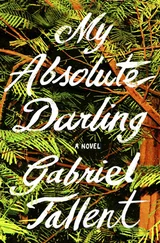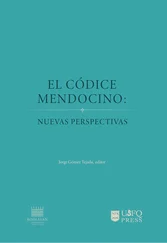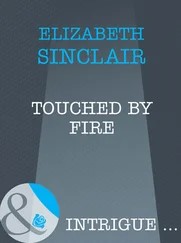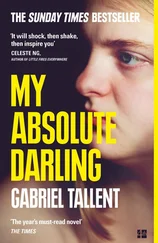“Wasn’t that—?” David said.
“Yes.”
“Did he just—?”
“When we’re in the car, you two,” Alan said. “I’ve got to be at the Zen Center at five.”
“The day before the surgery, he told me his biggest fear wasn’t that they wouldn’t get all the cancer. His biggest fear wasn’t of dying, even, though he said that was how his father died when he was only nine, under the anesthetic for an operation that was supposed to be simple, with nobody believing they needed to say goodbye beforehand, and now that he was facing a simple operation himself, one nobody dies of, he couldn’t help thinking of his father. A premonition. His biggest fear was that he’d be left impotent. Of all the things that can conceivably go wrong with prostate cancer surgery, that was the most terrifying.”
“What did you say?” Alan asked from the backseat.
“‘Most terrifying’? I’m wondering why it’s me, the gay boy, Howard chooses to confide in, about impotence. Because my existence revolves around penises? I’m kind of freaked out, because, you know Howard, his usual decorum, where’s that gone? But I want to be staunch for him. I love this man. And he says, ‘Not for me. If it came down to living without it, I would mourn, but it wouldn’t be the end of the world. For me. Whereas for Martha—’”
“‘Most terrifying,’” Alan said. “I’m very sorry he had to make those calculations.”
“‘—Martha can’t live without it.’”
“You were right there,” Alan said. “You reassured him?”
“Of course I reassured him.” David checked Alan’s expression in the rearview mirror. “But it’s not something I imagined, that the two of them ever — or still—”
“Or, hmmm, that she could be said—”
“You idiots, he adored her,” I said. “That’s what he was telling David. Not ‘She needs sex more than I do.’ But ‘This phenomenal woman, light of my life, it’s unimaginable that I might never make love to her again.’”
Alan took off his tie, rolled it up, tucked it in his jacket pocket, and then passed his glasses forward to me, saying, “Can you take custody?” I cradled them as cautiously as if they were his eyes. Once he was asleep David said, “That was him, wasn’t it?”
We had stood across from each other, not five feet apart, I told David, and he had not recognized me. “After I’d gone he must have stood there thinking But I know her, I know her from somewhere. Then he gets it — who I am, and that I’d walked away without a word. Which must have hurt.”
“It’s generally that way when you save your own skin — somebody gets hurt.”
“Even hurt, he blows me a kiss. That makes him seem—”
“Kind of great,” David said.
“Wasn’t I right? Walking away?”
“Don’t misunderstand me,” David said. “There’s no problem with a little mystery, in the context of a larger, immensely hard-won clarity.” He yawned. “I’m not the idiot.” He tipped his curly head to indicate the backseat. “He’s the idiot. Did I reassure him? Fuck me. When am I ever not reassuring.”
Oncoming traffic made an irregular stream of white light, its brilliance intensifying, fusing, then sliding by. I held up Alan’s glasses and the lights dilated gorgeously. I said, “You know why we’ll never give up cars? Because riding in cars at night is so beautiful, it’s telling stories in a cave with the darkness kept out, the dash lights for the embers of the fire.”
“You don’t have to tell me any stories,” David said. “I’m absolutely wide awake.”
I didn’t sleep long, but when I woke he was in a different mood.
“You know, his novel,” David said, “the one about you — is that a good book?”
“If you like his voice it’s good.”
“On its own, though, is it?”
Mine wasn’t exactly a disinterested reading, I said. The style is his style, and like all his work it takes hold of the reader, but unlike his previous books this novel seems rigged in the narrator’s favor, and it would have been more compelling if he had made the dark-haired lover—
“You,” David said.
— okay, me, but I really am talking about the character now, who is all shattered vulnerability and clinging, the embodiment of squishy need, no more, no less than that. But suppose he had granted her an aliveness the narrator could not entirely assimilate, if she had voiced interpretations conflicting with and even undermining his, if it began to be clear that she was in possession of a rival reality, then the margin of her being that is beyond his ken would imbue the whole with greater emotional veracity, would test the narrator’s ownership of the story, and cast doubt on the narrator’s decision to leave her. If she never gets more than one dimension, then it doesn’t matter to the reader that he ditches her. It’s not really moving. Whereas if she’s alive and the reader is privy to how much about her eludes him, then there is the problem of assessing the loss, and everything gets more interesting, right?
“For her to get more real,” David said, “she has to act, right? Give the narrator something to go on?”
“Give him something to go on, yes. But that could come right at the last minute.”
“That’s a sadder ending,” David said. “The way that you tell it.”
“I wasn’t thinking it was sad,” I said. “I was thinking it was — better.”
1
“Sure you want to go out in that?” he asks from his side of the counter, and in her frustration with his slowness to hand over the keys she says only, “I’m sure.” He says, “Because it’s really coming down,” and she says, “My father is dying,” immediately sorry to have marketed as explanation this truth no one should be able to bear, not her, not this stranger whose answer comes after a pause: “I’m sorry.” After another pause he says, “Lost my dad last year.” How distraught does she appear to his eyes, how likely to end up in a ditch? She discovers the necessary next utterance: “I’m sorry.” He says, paging through her paperwork, “Yeah, a year ago.” Mine is going to die tonight, and you’re keeping me from getting there , she thinks and does not say. Ten minutes earlier she stepped from the flow and thumbed her phone awake while disembarking passengers jostled past. She’d stood stock-still, taking in No messages , good news with a loophole, since it’s unclear, if he does die, how much time would elapse before her brother or sister would remember to call her, and if worst comes to worst — a phrase of her father’s — there will be an interval when the last-minute reconciliation she desires no longer has a chance of coming true, though she rushes toward it unknowing. Of all the catastrophes this night can conceivably hold, to fly toward him when he is already dead is the most desolating, and she has no means of ruling it out. The agent says, “Lung cancer,” and she wills patience into her response, saying, again, “I’m sorry,” then, meaning it, “Lung cancer is terrible,” suppressing What my father has, too , but maybe he detects their almost-comradeship in the bitterness with which she pronounced lung cancer , maybe that semblance of a bond appeases his doubt about her, because what he says next, left thumb anchoring the clipboard while his right fingertips pivot it to face her, is “Please sign by the X ,” his voice spare, his professional affability chastened by cancer-awe and remembrance of his father, and she likes him for letting sadness show, thinking Not such a bad delay , scribbling her never-liked first name and the surname belonging to her father, not so much time lost , and if his questions have exceeded the normal agent-customer regimen, he must have felt obliged to rule out the intoxication implied by her haywire demeanor. She finds she’s relying tonight on the words and turns of phrase her father favors — or does she always, forgetting the language was his first, and what she owes? Haywire is a pet indictment of his, more than once aimed at her, and was it especially intractable to work with, the wire used to bind hay? They stand there ruled by the jolliness of Christmas music, between them, easily within her reach, the counter where the document packet waits, and the fob with the keys, and her California driver’s license with a ten-years-younger her, the red hair she had then causing people in his position to have to glance from the forty-three-year-old professor to the photo and back again, her credit card with its holograph of a dove whose wings, when the card tips one way, splay open, and when tipped the other, snap shut, an endlessly replicable optical caprice that had fascinated her sister’s son on her long-ago last visit when, for fear of seeming an intolerant, starchy aunt, she hadn’t stopped his rummaging through her wallet; he’d been set on keeping the card, and her sister had a terrible time getting it back from him, and the credit card’s each and every use recalls for her the fluster of her sister’s embarrassment and her own realization that she had set the boy up to get into trouble. The agent says, “I used to hide his cigarettes when I was a kid. Stop him smoking, was my plan. Like there aren’t a million boxes of Marlboros in the world.”
Читать дальше












